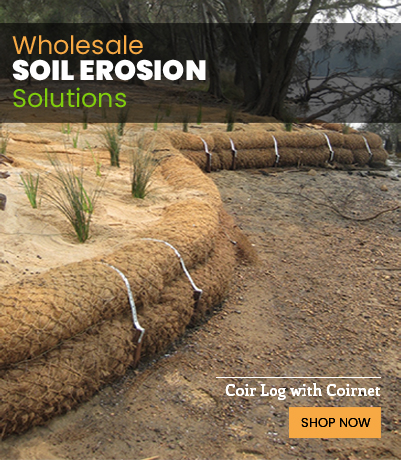Coir pith is a multi-purpose growing substance that can be used as a potting mix addition, soil-less medium, hydroponics grower, and more. It provides good environmental support as an alternative to perlite media and rockwool.
Coir pith, also known as coco pith, has strong water retention properties, while allowing air to pass through. Because of its unique organic compounds, coco pith can support strong root growth, contributing to a longer lifespan for plants. For these and many other reasons, coco pith has grown in popularity with home gardeners, as well as in the horticulture and agricultural industries.
What is Pith?
Pith is a soft and spongy plant material. Usually found in the roots and stem of a plant, it is often a white substance that turns brown as it matures. The main purpose of pith is to transport nutrients, using its large but thin-walled parenchyma cells. These cells are easily filled with water and nutrients.
In some plants, the middle of the stem is the pith. This may dry out as the plant matures, leaving a hollow center. With trees, pith eventually converts into the xylem. Pith allows vascular plants to transport water up and down the stem to its roots and leaves. You can see the pith in citrus fruit as the white spongy material. In coconuts, pith is the small organic material obtained from separating the fibers of the coconut husk.
Coir Pith
Coir pith is also known as coco pith, or cocopeat, for its role as a substitute for peat moss in gardening. Brown coir pith comes from ripe, mature coconuts, while younger, immature coconuts produce white coir pith. To produce coir pith, the waste from coir fiber is washed, treated, dried, and graded. It may be shipped in powder or compressed into blocks for gardening use.
Gardening Benefits of Coir Pith
Coir pith is naturally waterproof, is one of the few natural fibers resistant to saltwater damage, has a neutral pH balance, and is widely available and environmentally friendly. These qualities make it an ideal substance for agriculture and horticulture. Coir pith has the ability to retain large amounts of water. It is used as a replacement for traditional peat moss to supplement gardening soil. It is also used as a soil-less medium for some plant cultivation.
By itself, coco pith does not contain a high amount of nutrients. For this reason it is typically an addition to gardening soil. Because it is free of bacteria and fungus, and is generally believed to be an insect and mold repellent, it makes a welcome gardening addition. Coco pith is mixed with sand, compost, and fertilizer to make a high quality potting soil. It can be used for growing mushrooms, thanks to its high cellulose level.
One of coco pith’s most attractive qualities is that it can be reused up to three times, making it more sustainable than peat moss and other alternatives. Considered environmentally friendly and widely available, coir pith makes an excellent addition as a multi-purpose growing medium.

Leave a Reply
You must be logged in to post a comment.